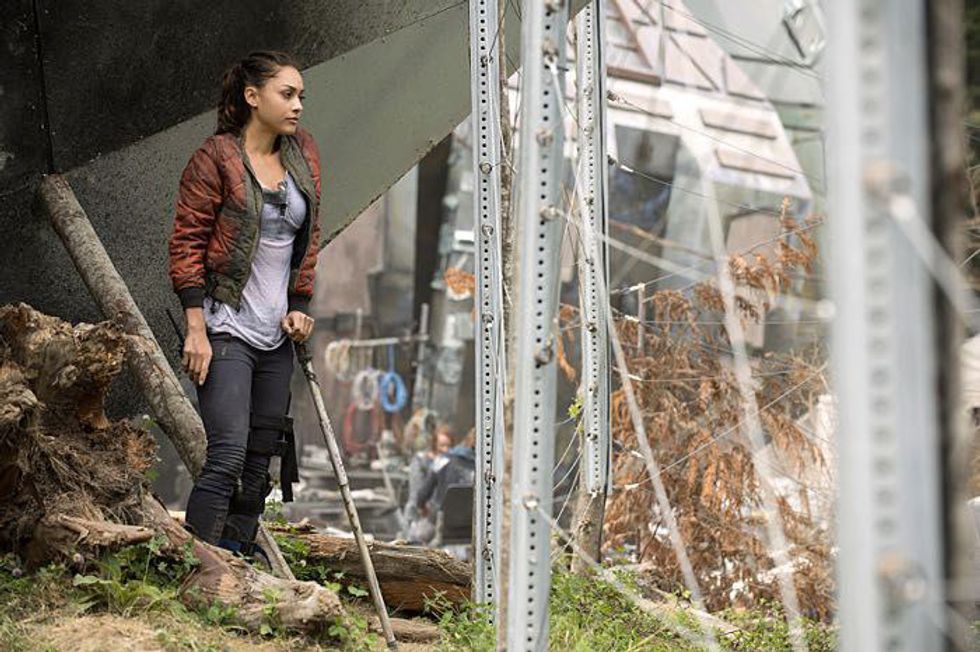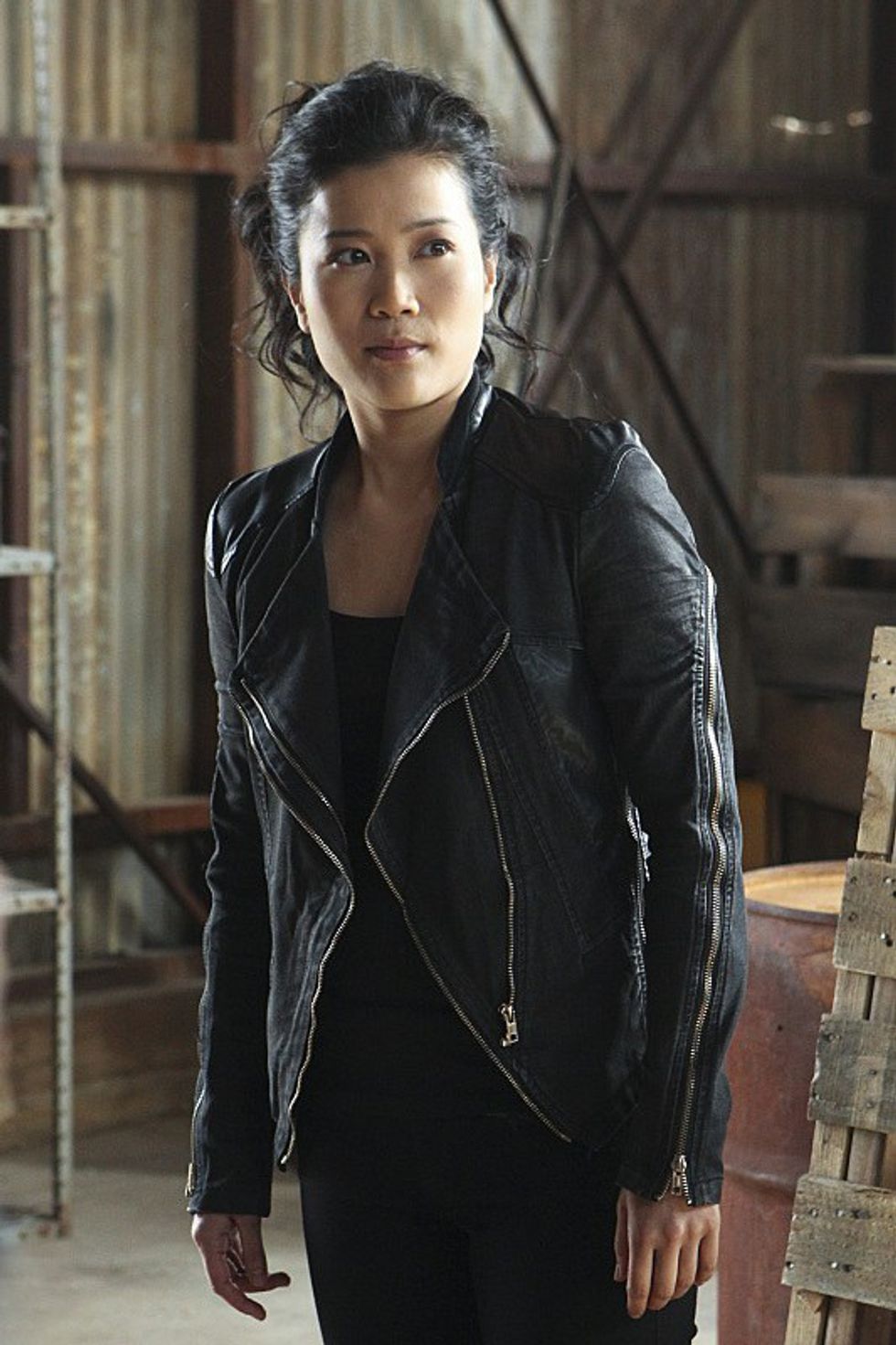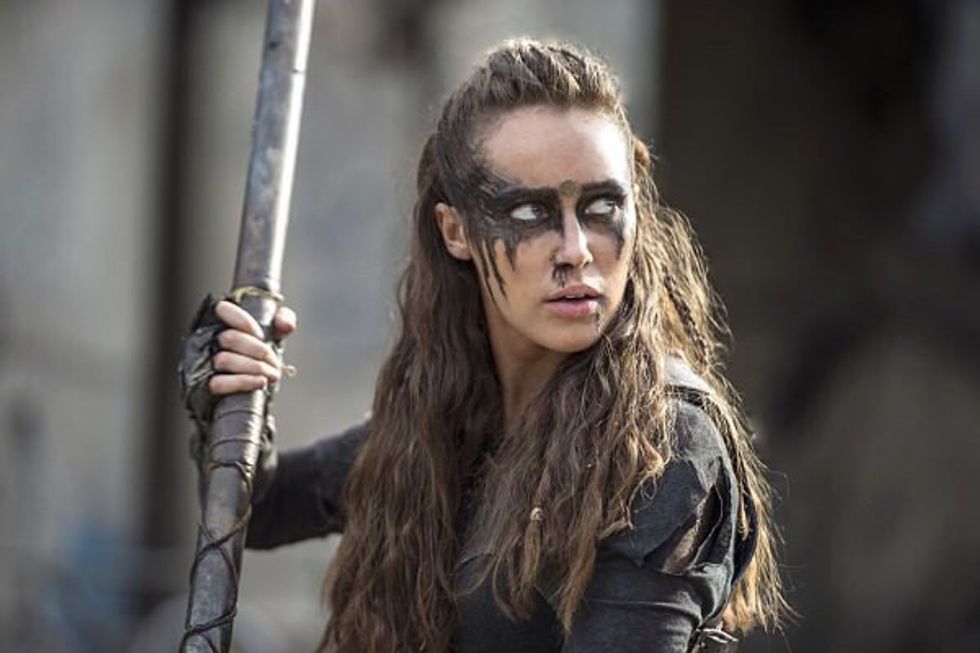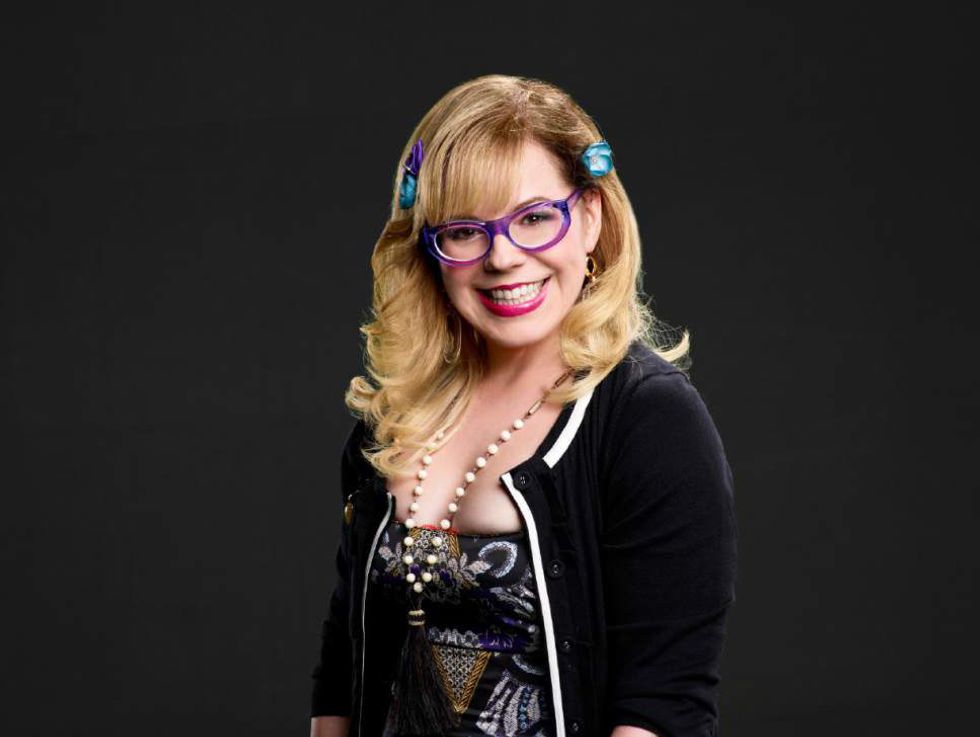Hollywood has a bad habit of sticking to harsh and hurtful stereotypes that just keep getting recycled for every different show or movie that comes along. It's tiring and lazy and does not make for good entertainment, but they seem to just do it anyways. Every once and awhile they break that routine and make a character that goes against many of those standard cycles. The following are these rare characters that are not without flaws, but are certainly a few good steps in the right direction.
Fair Warning: Spoilers Ahead
1. Raven Reyes ("The 100" — CW)
Throughout her time on the ground, she has been an asset to their survival but it certainly hasn't been without some setbacks. While trying to utilize the dropship's rocket engine, she is shot and the bullet lodges into her spine making her lose feeling in her legs. While able to talk the others through the procedure, she eventually regains feeling but is unable to fully use her left leg and is in chronic pain. Crafting a brace for herself she is eventually able to limp her way around camp without crutches or a walking stick. Resigning herself to the fact that she will have to live with this pain for the rest of her life, it gets worse when she is then captured by the enemy and harvested for bone marrow.
This badass woman of color [portrayed by Lindsey Morgan, a Mexican-Irish actress] is dealt bad hand after bad hand and never gives up. She challenges all of the heteronormative* norms in place for women because she is the top mechanic (usually seen as a man's job), and doesn't rely on a man or anyone else to save her. Raven Reyes, is the epitome of an intersectional* character being disabled, a woman, non-white, and an expert in a field typically dominated by men.
See this link for more information on the 100 or visit cwtv.com
*[Rubin]
2. Happy Quinn ("Scorpion" — CBS)
Happy Quinn is a mechanical prodigy with an IQ of 184, and a member of Walter O'Brien's group of geniuses. Working for Homeland Security, they are routinely pathologized*, or regarded as weird or "other", because of their "abnormal" ways of getting things done. The team of five work together with their government handler Agent Cabe Gallo to solve cases only they, with their specialities, can. Happy's specialty in mechanics and her photographic memory allows her to construct anything it is they need out of anything they can find. Her existence on this show is not intended for the male gaze* entirely, but, also like the above character, is one of use and importance that the rest of those involved would be lost without. Along with this, she is also not tokenized* because of her race as Hong Kong Chinese. Unlike the stereotypical Asian trope that is popular in a lot of today’s media, she isn’t a math nerd or a broken-English speaker, she’s a genius mechanic who isn’t just known as “the Asian girl.”
Check out "Scorpion" on cbs.com
*[Spade/Halberstam]
3. Commander Lexa ("The 100" — CW)
Commander Lexa was a warrior and the leader of the 12 grounder clans in the show "The 100." Unlike number one on this list, Lexa was not from the sky, but instead an inhabitant of the ground that the sky people had inevitably clashed with. Overseer of the other clans that she singlehandedly united, she was responsible for keeping the coalition intact and safe from outlying/hostile clans. Once an alliance between the Grounders and the Sky People was established, it was revealed that she was formerly in a relationship with another woman.
Confirmed as a lesbian by the executive staff of the show, she became an excellent example of queer representation* throughout her run. Alongside the confirmed bisexual character and lead of the show, Clarke Griffin, they developed a relationship that excited fans, and gave them hope that a queer relationship was finally being represented so primarily on a network show. It was enthralling and emotional and real, but it was also quite short lived. Five minutes after her and Clarke finally get together and profess their feelings, Lexa is killed, and all of the hope and trust the fans had put into the show was crushed. Also known as queer-baiting*, the show-runners hyped up the relationship, knew about the fan following it had, and knew of it’s importance, but still decided to kill off one of the most beloved characters on the show. I won’t go too much in depth, I’ll let this Variety article do that, but the handling of this horrible “bury you gay” trope was hurtful to many of the fans that were led to believe that this relationship would be handled better than most other shows do, only to be let down by her abrupt departure in one episode.
This ties into the livability* of queer characters in television and how they rarely last the entire run of the show. For some reason they are not deemed worthy of anything more than a tragic ending that is only done for shock value.
In the end, despite the horrible ending to her story, the story she told before that was a sign that there is a possibility to see more characters like her in the future; strong, female warriors who are respected leaders at any age.
See this link for more information on the 100 or visit cwtv.com
*[Butler]
4. Sophia Burset ("Orange Is The New Black" — Netflix)
Sophia Burset is an inmate at Litchfield Penitentiary and is transgender. In for credit card fraud, she works at the prison’s salon as a hairdresser, but was previously a firefighter. Having transitioned from male to female, she struggles with the prison not allowing her access to the right hormones needed to continue her transition, and tries to reconcile with the fact that she isn’t treated fairly.
Played by a transgender woman, which is rare for such roles in Hollywood, OITNB emits through this character the transgender look*. The character of Sophia provides representation that is not seen on big network television, and showcases how it doesn’t have to be tragic to be told. So, although it does not end in tragedy, it also is not smooth sailing. Dealing with a wife and son as she is both in prison and transitioning is an example of this. The tumultuous relationship is coupled with a complicated one inside the prison as well among her fellow inmates. Either uneducated or ignorant, some inmates have predetermined or prejudiced views of Sophia. Another word for this could be, biological essentialism* because of their belief of gendered acts and behaviors as predetermined for a specific gender. Sophia challenges these beliefs and notions, and continues to be her true self no matter what any of the fellow inmates or officers say. She is proud of who she is and will not apologize for it.
*[Halberstam/Zinn]
5. Agent Penelope Garcia ("Criminal Minds" — CBS)
Penelope Garcia is a Special Agent in the Behavioral Analysis Unit of the FBI. As their Communications Director and Technical Analyst she is in charge of presenting the cases to the rest of the team, as well as compile information on the various people involved in any particular case. Her spectacular computer skills are wondrous and worth noting, however, that is not why she is on this list.
The relationship between her and colleague Special Agent Derek Morgan is one that I believe is an important one that is all too rare in our media. Their strictly platonic friendship is one that many people envy. Even though it is not romantic, they aren’t afraid to be flirty and teasing, or stern and honest. This type of friendship between a male and female is rarely seen in the media unless it is leading up to a romance; except for this one. I admire the fact that they aren’t afraid to tell the other that they love them. There is no doubt or lack of conviction when it is said either; they genuinely care for the other, and everyone knows it. When Morgan first started dating his now wife Savannah, it was clear that she knew about his close relationship with Garcia, but was not threatened by it at all. Clearly defying the heteronormative* norms of opposite gender friendships only existing to serve as a precursor to romantic relationships, this relationship showcases how you don’t need romance or sexual intimacy to be intimate. A man and a woman, detailed by this portrayal of two loving friends, can be intimate and close and real and valid just as valid as a romantic relationship is. The boy and the girl don’t have to kiss for the relationship to be real and valid.
Her agency*, or autonomy, could have been ripped away from her as soon as she was brought into the Bureau, but instead it was a reason she was hired. Being caught by the FBI for hacking into the FBI probably isn't the ideal way of doing anything, but especially getting a job. Liking her skills, Supervisory Special Agent Aaron Hotchner thought they could use someone in the BAU with her skill-set and offered her a job right in the very interrogation room she was being held in. Hotchner would later say that her quirkiness and resume written on “pink, homemade stationary” played a role in his hiring of her, so it makes sense that she is allowed to fill her office with lights, figurines, and as many colors as she can find. Her sense of fashion is certainly not that of someone who you would think worked for the FBI, but when she had once tried to tone it down and wear a pencil skirt and contact lenses, Morgan was quick to remind her that she was perfect the way she was. Her quirks are celebrated and that alone is something that isn’t done enough.
Check out "Criminal Minds" on cbs.com
*[Rubin/Berg;Lamb]


























